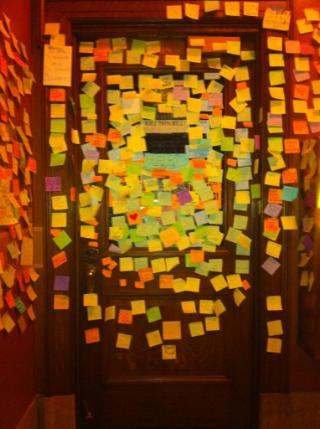Wisconsin Protests, Tuesday, March 1, 2011
MARY BOTTARI ON DEMOCRACY NOW!
Watch our own Mary Bottari speak on Democracy NOW! about thousands of protesters that were being denied entry to the State Capitol yesterday despite a court order to open the building to the public.
CMD REPORTS: WISCONSIN GOVERNOR DENIES COURT ORDER TO OPEN CAPITOL
From Mary Bottari. Read the full article here.
In a dramatic turn of events at the Wisconsin State Capitol today, Governor Scott Walker defied a court order to open the Capitol for normal business operations. State legislator, Representative Marc Pocan, called the move "not only unprecedented, but contempt of court as well."
On Monday at 8:00 a.m., the Wisconsin Capitol building, which was the site of dozens of major protests in the last two weeks -- including one of over 100,00 on Sunday -- was virtually locked down as the Governor moved to limit protester access in advance of his scheduled budget address on Tuesday.
After untold numbers were turned away at the door Monday and told they could not speak to their legislators, Dane County Sheriff David Mahoney pulled his deputies from the Capitol saying it was not their job to act as "palace guard." Wisconsin has some of the strongest open meetings and open government laws in the nation, and the local sheriff's department had played a key role in allowing protesters to exercise their legal rights in a public space, while keeping the protests inside and outside the Capitol safe and incident-free.

 11:58 p.m. - Jonathan Rosenblum reports: According to unofficial count approximately 300 protesters are staying the night and a low profile contingent of law enforcement, some with "State Fair" patches on their shoulders. Less than two dozen visible.
11:58 p.m. - Jonathan Rosenblum reports: According to unofficial count approximately 300 protesters are staying the night and a low profile contingent of law enforcement, some with "State Fair" patches on their shoulders. Less than two dozen visible. Embattled Wisconsin Governor
Embattled Wisconsin Governor